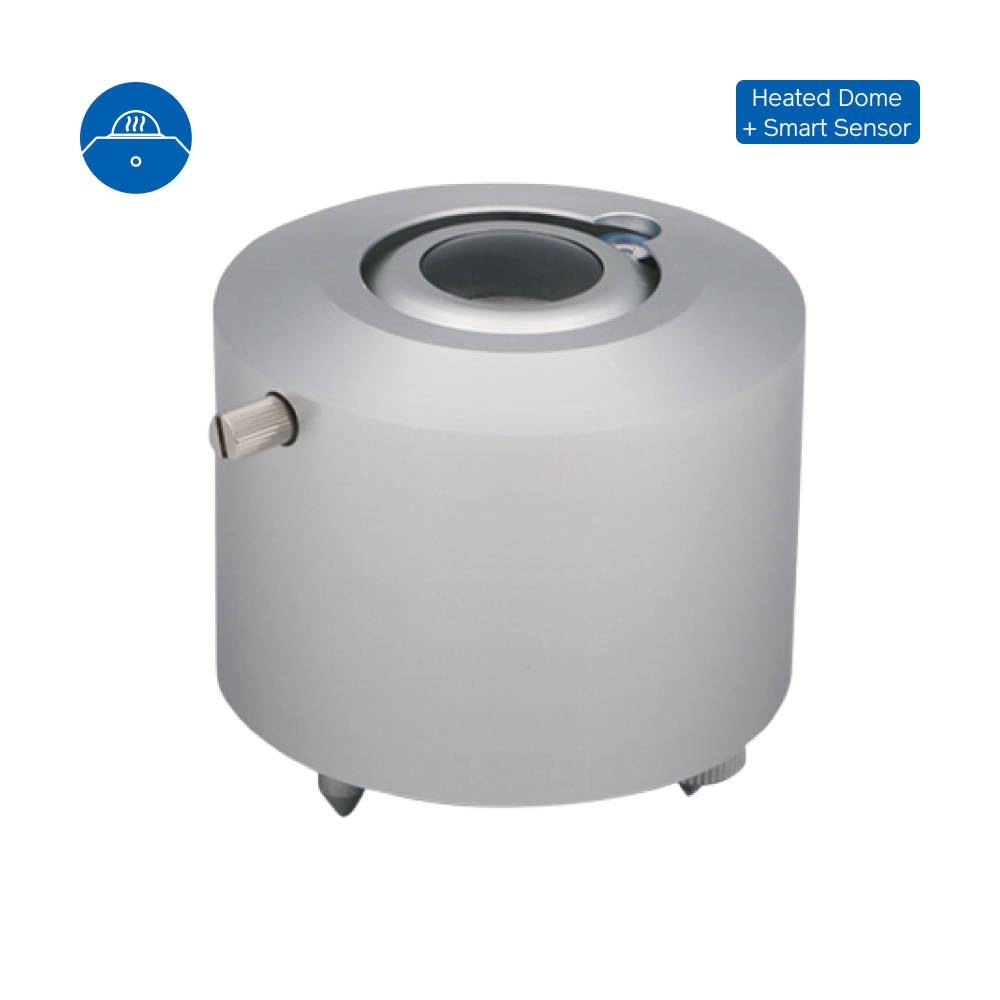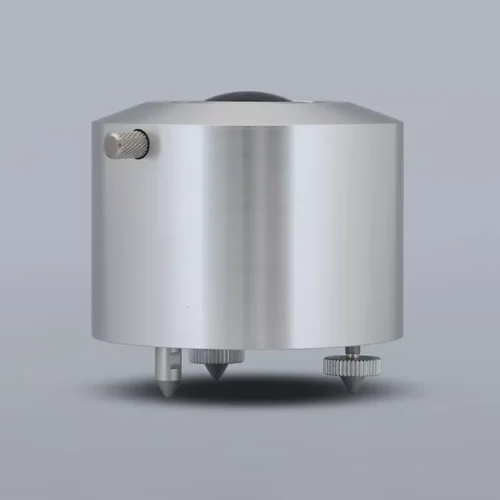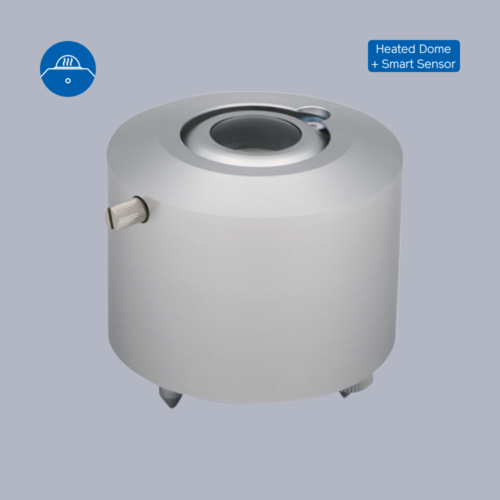MS-21SH
Pyrgeometers

Research-grade pyrgeometer with WISG traceable calibration
Research-grade, accurate, and robust, the MS-21SH measures longwave downwelling radiation and longwave net radiation in a wide spectral band and delivers superior stability independent of the sensors’ operating temperature.

MS-21SH
Designed to raise the bar, the MS-21SH Pyrgeometer is research-grade, accurate, robust and delivers superior stability independent of the sensors’ operating temperature. Based on a new design concept and built for consistency, the MS-21SH minimises temperature differences and suppresses window heating errors.
Whatever the conditions, the MS-21SH measures longwave downwelling radiation and longwave net radiation in a wide spectral band without needing a sun tracker with a shading device or shadow ring. It features a silicon meniscus dome with solar blind interference filter and hard carbon coating, a new thermal coupling design, onboard temperature compensating electronics, and a unique aluminium alloy sun shield.
With a 5-year Warranty, World Infrared Standard Group (WISG) traceable calibration, and PT-100/4W IEC60751 Class A Industrial platinum resistance thermometers and temperature sensors; the MS-21SH achieves the highest standards for quality, accuracy, and reliability.
The MS-21SH built on that achievement with the addition of Modbus 485 RTU and SDI-12 digital outputs for improved compatibility with data loggers and SCADA systems; also introducing new internal diagnostic systems, now standard to all S-Series sensors, offering visibility over internal temperature, humidity, tilt, and roll angle; helping to ensure optimum performance without the need for regular physical checks.
These features, along with a new low power consumption integrated solid-state window heater make the MS-21SH one of the best value sensors available; ideal for hard to reach locations, and monitoring networks with restricted access.
Based on EKO’s universal sensor design, the MS-21SH is robust, weather-proofed and compatible with the MV-01 Ventilator & Heater perfect for for continuous outdoor measurement, whatever the conditions.
Each unit comes with a 5-year warranty and World Infrared Standard Group (WISG) traceable calibration assuring top-quality performance and reliability for every application.
Key Features:
- NEW improved thermal design, outstanding low window heating
- Smart Sensor, Modbus 485, SDI-12 output
- WISG Traceability Excellent Stability
- 4.5µm – 42µm flat spectral response
- Integrated solid stated dome heating
- EKO Universal Sensor Design
- 5-year Warranty & EKO Quality Guarantee
Resources
3D Files
Accessories
Frequently Paired Together
| Wavelength Range | 4.5 to 42μm |
|---|---|
| Response time | < 18 Sec (@95%) |
| Window heating offset | < 4 W/m² |
| Zero offset B | < 1 W/m² |
| Temperature response | < 1 % (-20 to 50°) |
| Signal Output | Modbus 485 RTU / SDI-12 |
| Sensor Diagnostic | Relative Humidity ± 2% Temp. ± 0.5ºC / Tilt Angle ± 1° |
| Operating temperature range | -40 to 80 °C |
| Net radiation measurement range | -250 to 250 W/m² |
| Supply voltage | 8 to 30 VDC |
| Power Consumption | < 1.4 W |
| Field of View | 180° |
| Detector temperature sensor | Pt-100 Class A |
| Standard Cable Length | 10m (Optional lengths 20m, 30m, 50m) |
| Ingress protection | IP67 |


